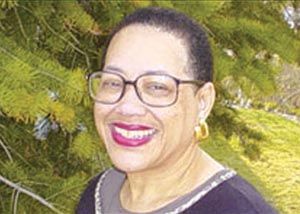 Federal regulators and lenders convened Nov. 6-9 in Baltimore to review and analyze whether the goals of the nation's Community Reinvestment Act (CRA) and fair lending laws are being observed. The annual event, now in its 15th year, attracted sell-out attendance to hear a series of expert presenters' insights and analyses.
Federal regulators and lenders convened Nov. 6-9 in Baltimore to review and analyze whether the goals of the nation's Community Reinvestment Act (CRA) and fair lending laws are being observed. The annual event, now in its 15th year, attracted sell-out attendance to hear a series of expert presenters' insights and analyses.
For Assistant Attorney General Thomas E. Perez, the annual colloquium became the occasion for a keynote address that reminded the audience that for communities of color, fair lending remains elusive. "Regrettably, we have found" said Perez, "that all too often borrowers are judged by the color of their skin rather than the content of their creditworthiness."
As head of the Department of Justice's Civil Rights Division since October 2009, Perez noted that more than half of the 2010 referrals received from other federal lending regulators involved discrimination on race or national origin.
Through the creation of a dedicated Fair Lending Unit at DOJ, over $30 million in direct compensation for individuals whose rights were violated has been secured. Also in 2010, the unit reached settlements or filed complaints in 10 pattern or practice lending cases. Of these ten cases, nine have been settled since last year.
Much of this enforcement, according to Perez, is accomplished in collaboration with the President's Financial Fraud Enforcement Task Force. With representatives from DOJ and other federal agencies, as well as state attorneys general and local law enforcement, the task force investigates and prosecutes a wide range of financial crimes.
"Without a credible enforcement program," said Perez, "we can never achieve full compliance with the law or fully level the playing field between responsible lending institutions and unscrupulous lenders."
In 2011, a record number of cases have been filed under the Equal Credit Opportunity Act. Currently, there are seven authorized lawsuits and more than 20 active investigations involving redlining claims, pricing discrimination, and product steering based on race or national origin.
In an effort to address the devastation of neighborhoods and home values, the Civil Rights Division is including innovative provisions to address the full scope of damage done, in addition to settlement terms stipulating more traditional remedies such as a marketing campaigns or establishing a physical presence in under-served communities.
For example, in a St. Louis settlement with Midwest Bank, the decree calls for assistance to help residents repair their credit and provide access to low-cost checking accounts. Similarly, in the metropolitan Detroit decree with Citizens Bank, the lender must provide home improvement grants to current homeowners living in neighborhoods hard-hit by foreclosures. Both Citizens and Midwest agreed to find solutions that would allow them to remedy the harm done while also reaching new customers.
In cases where African-American and Latino borrowers were charged more than similarly qualified white borrowers, the Civil Rights Division examined loan origination practices, guidelines on how fees or interest rates were set, and whether there was any documentation to explain differences in prices.
Summarizing goals for both current and future efforts, Perez called for transparent transactions, prompt decisions, fair lending, and open communication with all borrowers.
"It is the stubborn persistence of race as a factor in the pricing of loans" concluded Perez, "even after you account for relevant creditworthiness factors that we seek to address through our enforcement actions. The disparity grows as you move up the credit score ladder. All too frequently, equal credit opportunity remains elusive for minorities, even upper-income minorities who are creditworthy."
Charlene Crowell is a communications manager with the Center for Responsible Lending.
- Home
- News
- Opinion
- Entertainment
- Classified
- About Us
 MLK Breakfast
MLK Breakfast- Community
- Foundation
- Obituaries
- Donate
04-18-2024 6:25 am • PDX and SEA Weather




















































































































































































































































































































